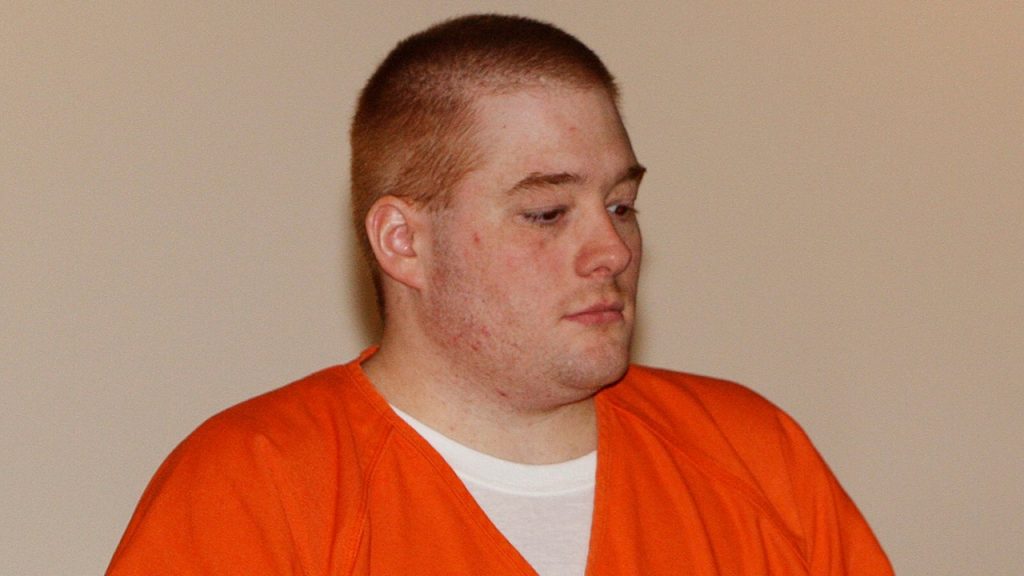Kevin Ray Underwood’s life culminated in a stark and somber conclusion on Thursday, December 15, 2022, as he was executed by lethal injection at the Oklahoma State Penitentiary in McAlester. This marked the 25th and final execution carried out in the United States that year. Underwood’s heinous crime, the 2006 murder of 10-year-old Jamie Rose Bolin, etched a chilling narrative of depravity and horror. Driven by a disturbing cannibalistic fantasy, the former grocery store worker lured the young girl into his apartment, where he brutally ended her life. The details of his crime, including the beating, suffocation, and sexual assault, painted a grim picture of a mind consumed by darkness. Underwood’s confession to investigators further solidified the horrific nature of his actions, revealing his initial intent to decapitate and consume the child’s body.
The final hours of Underwood’s life were marked by a mixture of routine and remorse. He was granted a last meal of traditional comfort food – chicken fried steak, mashed potatoes and gravy, pinto beans, a hot roll, cheeseburger and fries with ketchup, and cola – which he consumed the evening before his execution. He declined the presence of a chaplain in the execution chamber but opted for sedatives to ease the transition into the three-chemical lethal injection protocol. As the execution proceeded, witnesses reported that Underwood expressed remorse, apologizing for his unspeakable act and acknowledging the pain he inflicted upon the Bolin family. He also lamented the perceived cruelty of his execution falling on his 45th birthday and just days before Christmas. The execution itself was reportedly carried out without complications.
Underwood’s journey to the death chamber was marked by legal battles and arguments for clemency. His defense team consistently pointed to a history of severe mental illness, including autism, obsessive-compulsive disorder, bipolar disorder, panic disorder, post-traumatic stress disorder, schizotypal personality disorder, and various paraphilias, as mitigating factors. They argued that this extensive history of mental health issues warranted a sentence less than death. However, the prosecution countered that while mental illness is a serious concern, it does not excuse the horrific nature of Underwood’s crime against a vulnerable child. Many individuals grapple with mental health challenges without resorting to violence, especially against children.
In a final attempt to halt the execution, Underwood’s attorneys filed a last-minute appeal with the U.S. Supreme Court. They argued that the Oklahoma Pardon and Parole Board had violated state law and Underwood’s rights by rescheduling a clemency hearing at the last minute following the resignation of two board members. They contended that Underwood deserved a hearing before the full five-member board. The Supreme Court, however, rejected this appeal, paving the way for the execution to proceed.
The execution of Kevin Ray Underwood marked another chapter in Oklahoma’s long history with capital punishment. Since 1915, the state has executed 206 men and three women. With Underwood’s execution, 32 men and one woman remained on Oklahoma’s death row. The case served as a stark reminder of the complex and often contentious debate surrounding capital punishment, particularly in cases involving severe mental illness.
The execution reverberated throughout the community and beyond, leaving an indelible mark on all involved. The family of Jamie Rose Bolin undoubtedly bore the brunt of the tragedy, grappling with the enduring pain of their loss. The Oklahoma Department of Corrections, tasked with carrying out the court’s order, adhered to its protocols while striving to maintain professionalism and respect. Director Steven Harpe acknowledged the far-reaching impact of the event, emphasizing the agency’s commitment to upholding the dignity of everyone involved in the process. The execution ultimately marked a grim end to a tragic story, leaving lingering questions about justice, mental illness, and the ultimate price of horrific actions.

